- Home
- L. Frank Baum
Mary Louise and the Liberty Girls Page 10
Mary Louise and the Liberty Girls Read online
Page 10
any," confessed Mary Louise.
Josie put the circulars in her pocket.
"Now, then, tell me whom you suspect, and why," she said.
Until now Mary Louise had not mentioned the clothing merchant to Josie,but she related Jake Kasker's frank opposition to the war at theLiberty Bond mass-meeting and her interview with him in his store, inwhich he plainly showed his antagonism to the draft and to theadministration generally. She read to Josie the shorthand notes she hadtaken and supplemented all by declaring that such a man could be guiltyof any offense.
"You see," she concluded, "all evidence points to Kasker as thetraitor; but Chief Farnum is stubborn and independent, and we mustobtain positive proof that Kasker issued those circulars. Then we canput an end to his mischief-making. I don't know how to undertake such ajob, Josie, but you do; I'm busy at the Liberty Shop, and we can spareyou from there better than any one else; so, if you want to 'practise,'here's an opportunity to do some splendid work."
Josie was a good listener. She did not interrupt Mary Louise, but lether say all she had to say concerning this interesting matter. When herfriend paused for lack of words, Josie remarked:
"Every American's watchword should be: 'Swat the traitor!' War seems tobreed traitors, somehow. During the Civil War they were called'copperheads,' as the most venomous term that could be applied to thebreed. We haven't yet coined an equally effective word in this war, butit will come in time. Meanwhile, every person--man or woman--who is notwhole-heartedly with President Wilson and intent on helping win thewar, is doing his country a vital injury. That's the flat truth, andI'd like to shake your Jake Kasker out of his suit of hand-me-downclothing. If he isn't a traitor, he's a fool, and sometimes fools aremore dangerous than traitors. There! All this has got me riled, and aninvestigator has no business to get riled. They must be calm andcollected." She slapped her forehead, settled herself in her chair andcontinued in a more moderate tone: "Now, tell me what other people inDorfield have led you to suspect they are not in accord with theadministration, or resent our entry into the Great War."
Mary Louise gave her a puzzled look.
"Oughtn't we to finish with Kasker, first?" she asked, hesitatingly,for she respected Josie's judgment.
The girl detective laughed.
"I've an impression we've already finished with him--unless I reallygive him that shaking," she replied. "I'll admit that such a person ismischievous and ought to be shut up, either by jailing him or putting aplaster over his mouth, but I can't believe Jake Kasker guilty of thosecirculars."
"Why not?" in an aggrieved tone.
"Well, in spite of his disloyal mutterings, his deeds are loyal. He'sdisgruntled over the loss of his son, and doesn't care who knows it,but he'll stand pat and spank the kid if he doesn't fight like atartar. He hates the war--perhaps we all hate it, in a way--but he'llbuy Liberty Bonds and help win a victory. I know that sort; they're notdangerous; just at war with themselves, with folly and honestystruggling for the mastery. Let him alone and in a few months you'llfind Kasker making patriotic speeches."
"Oh, Josie!"
"Think of someone else."
Mary Louise shook her head.
"What, only one string to your bow of distrust? Fie, Mary Louise! Whenyou were selling Liberty Bonds, did you meet with no objectors?"
"Well--yes; there's a wholesale grocer here, who is named SilasHerring, a very rich man, but sour and disagreeable."
"Did he kick on the bonds?"
"Yes."
"Then tell me all about him."
"When I first entered his office, Mr. Herring made insulting remarksabout the bonds and accused our government of being dominated by theEnglish. He was very bitter in his remarks, but in his office were twoother men who remonstrated with him and--"
"What were the two men doing there?"
"Why, they were talking about something, when I entered; I didn't hearwhat, for when they saw me they became silent."
"Were they clerks, or grocers--customers?"
"No; one was our supervisor, Andrew Duncan--"
"And the other man?" asked Josie.
"Our superintendent of schools, Professor Dyer."
"Oh; then they were talking politics."
"I suppose likely. I was obliged to argue with Mr. Herring and becameso incensed that I threatened him with the loss of his trade. But Mr.Duncan at once subscribed for Liberty Bonds, and so did Professor Dyer,and that shamed Silas Herring into buying a big bunch of them also."
"H-m-m," murmured Josie contentedly. "Then neither of the three hadpurchased any bonds until then?"
"I think not. Gran'pa Jim had himself tried to sell Mr. Herring and hadbeen refused."
"I see. How much did the supervisor invest in bonds?"
"One hundred dollars."
"Too little. And the Professor?"
"Five hundred."
"Too much. He couldn't afford it, could he?"
"He said it was more than his salary warranted, but he wanted to bepatriotic."
"Oh, well; the rich grocer took them off his hands, perhaps. Nodisloyal words from the Professor or the supervisor?"
"No, indeed; they rebuked Mr. Herring and made him stop talking."
Josie nodded, thoughtfully.
"Well, who else did you find disloyal?"
"No one, so far as I can recollect. Everyone I know seems genuinelypatriotic--except," as an afterthought, "little Annie Boyle, and shedoesn't count."
"Who is little Annie Boyle?"
"No one much. Her father keeps the Mansion House, one of the hotelshere, but not one of the best. It's patronized by cheap traveling menand the better class of clerks, I'm told, and Mr. Boyle is said to do agood business. Annie knows some of our girls, and they say she hatesthe war and denounces Mr. Wilson and everybody concerned in the war.But Annie's a silly little thing, anyhow, and of course she couldn'tget out those circulars."
Josie wrote Annie Boyle's name on her tablets--little ivory affairswhich she always carried and made notes on.
"Do you know anyone else at the Mansion House?" she inquired.
"Not a soul."
"How old is Annie?"
"Fourteen or fifteen."
"She didn't conceive her unpatriotic ideas; she has heard someone elsetalk, and like a parrot repeats what she has heard."
"Perhaps so; but--"
"All right. I'm not going to the Liberty Girls' Shop to-morrow, MaryLouise. At your invitation I'll make myself scarce, and nose around. Tobe quite frank, I consider this matter serious; more serious than youperhaps suspect. And, since you've put this case in my hands, I'm sureyou and the dear colonel won't mind if I'm a bit eccentric in mymovements while I'm doing detective work. I know the town pretty well,from my former visits, so I won't get lost. I may not accomplishanything, but you'd like me to try, wouldn't you?"
"Yes, indeed. That's why I've told you all this. I feel something oughtto be done, and I can't do it myself."
Josie slipped the tablets into her pocket.
"Mary Louise, the United States is honeycombed with German spies," shegravely announced. "They're keeping Daddy and all the Department ofJustice pretty busy, so I've an inkling as to their activities. Germanspies are encouraged by German propagandists, who are not always Germanbut may be Americans, or even British by birth, but are none the lessdeadly on that account. The paid spy has no nationality; he is true tono one but the devil, and he and his abettors fatten on treachery. Hisabettors are those who repeat sneering and slurring remarks about ourconduct of the war. You may set it down that whoever is notpro-American is pro-German; whoever does not favor the Allies--all ofthem, mind you--favors the Kaiser; whoever is not loyal in this hourof our country's greatest need is a traitor."
"You're right, Josie!"
"Now," continued Josie, reflectively, "you and I must both understandthat we're undertaking a case that is none of our business. It's thebusiness of Mr. Bielaski, of the department of justice, first of all;then it's the business of Mr. Flynn, of the s
ecret service; then it'sthe business of the local police. Together, they have a thousand eyes,but enemy propagandists are more numerous and scattered throughout thenation. Your chief of police doesn't want to interfere with the federalagents here, and the federal agents are instructed not to pay attentionto what is called 'spy hysteria,' and so they're letting things slide.But you believe, and I believe, that there's more treachery underlyingthese

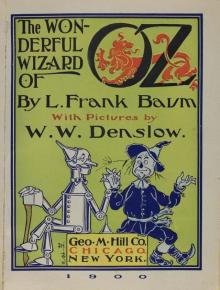 The Wonderful Wizard of Oz
The Wonderful Wizard of Oz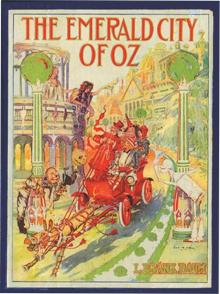 The Emerald City of Oz
The Emerald City of Oz The Story of Peter Pan, Retold from the fairy play by Sir James Barrie
The Story of Peter Pan, Retold from the fairy play by Sir James Barrie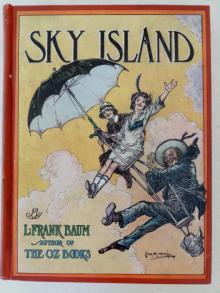 Sky Island
Sky Island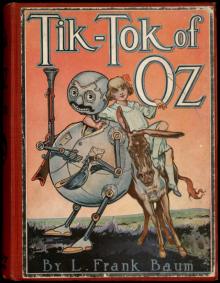 Tik-Tok of Oz
Tik-Tok of Oz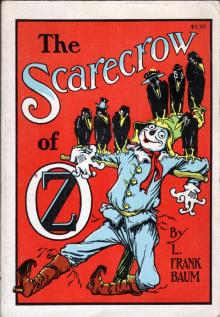 The Scarecrow of Oz
The Scarecrow of Oz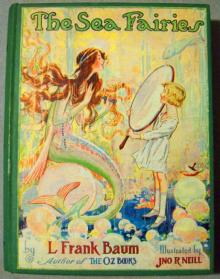 The Sea Fairies
The Sea Fairies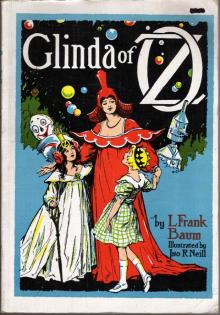 Glinda of Oz
Glinda of Oz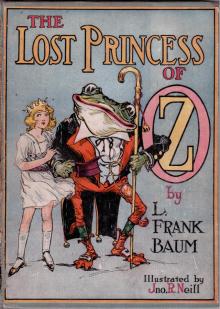 The Lost Princess of Oz
The Lost Princess of Oz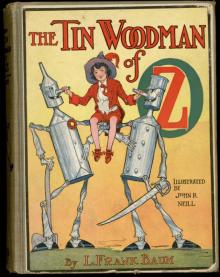 The Tin Woodman of Oz
The Tin Woodman of Oz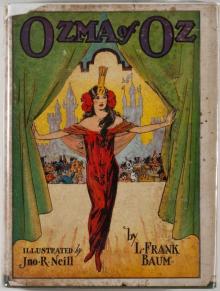 Ozma of Oz
Ozma of Oz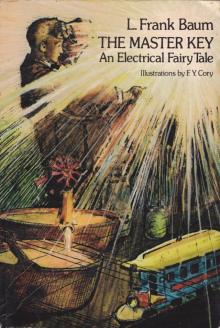 The Master Key
The Master Key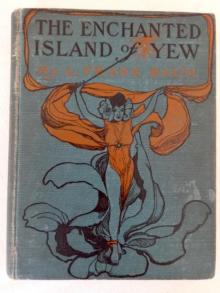 The Enchanted Island of Yew
The Enchanted Island of Yew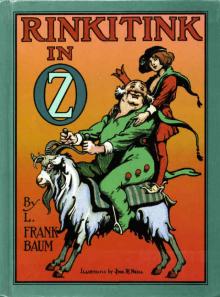 Rinkitink in Oz
Rinkitink in Oz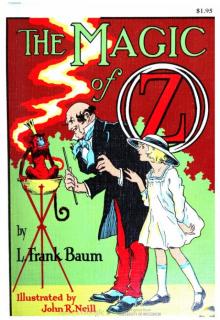 The Magic of Oz
The Magic of Oz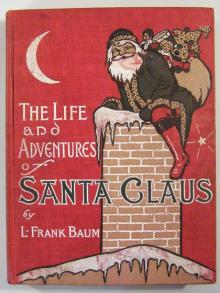 The Life and Adventures of Santa Claus
The Life and Adventures of Santa Claus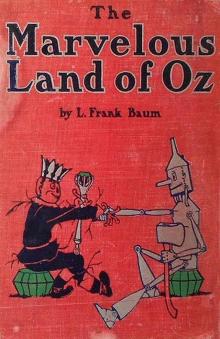 The Marvelous Land of Oz
The Marvelous Land of Oz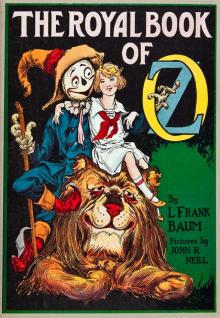 The Royal Book of Oz
The Royal Book of Oz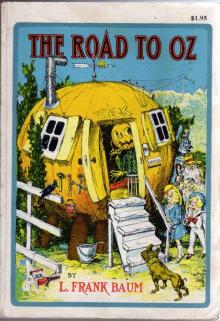 The Road to Oz
The Road to Oz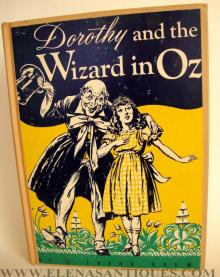 Dorothy and the Wizard in Oz
Dorothy and the Wizard in Oz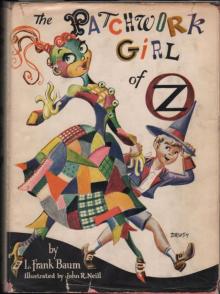 The Patchwork Girl of Oz
The Patchwork Girl of Oz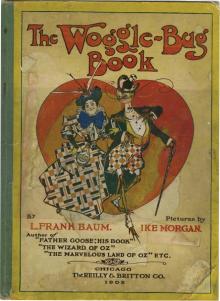 The Woggle-Bug Book
The Woggle-Bug Book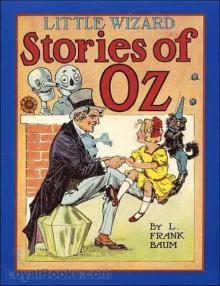 Little Wizard Stories of Oz
Little Wizard Stories of Oz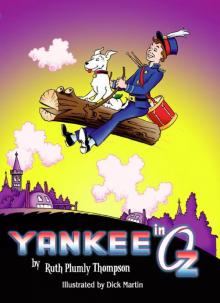 Yankee in Oz
Yankee in Oz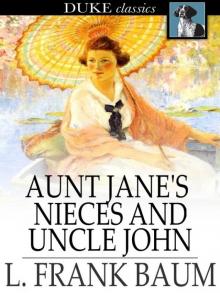 Aunt Jane's Nieces and Uncle John
Aunt Jane's Nieces and Uncle John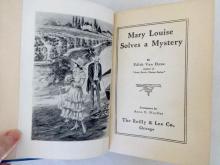 Mary Louise
Mary Louise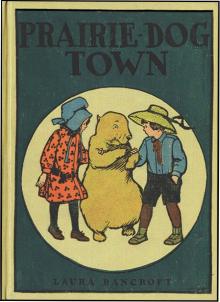 Prairie-Dog Town
Prairie-Dog Town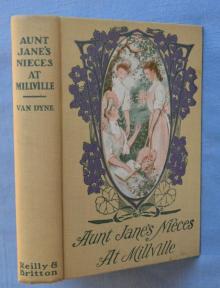 Aunt Jane's Nieces at Millville
Aunt Jane's Nieces at Millville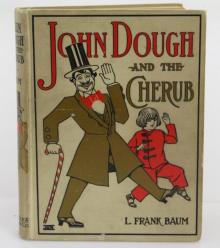 John Dough and the Cherub
John Dough and the Cherub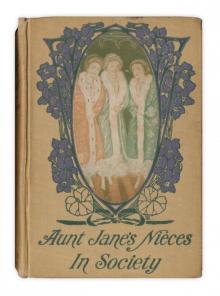 Aunt Jane's Nieces in Society
Aunt Jane's Nieces in Society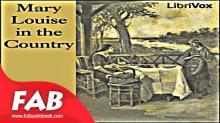 Mary Louise in the Country
Mary Louise in the Country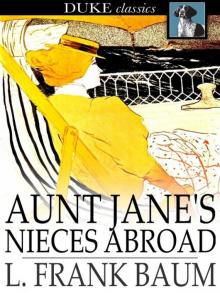 Aunt Jane's Nieces Abroad
Aunt Jane's Nieces Abroad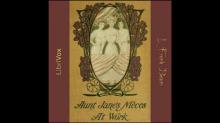 Aunt Jane's Nieces at Work
Aunt Jane's Nieces at Work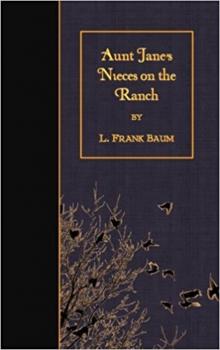 Aunt Jane's Nieces on the Ranch
Aunt Jane's Nieces on the Ranch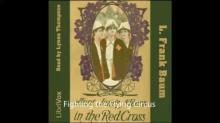 Aunt Jane's Nieces in the Red Cross
Aunt Jane's Nieces in the Red Cross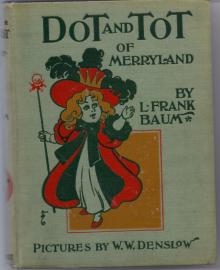 Dot and Tot of Merryland
Dot and Tot of Merryland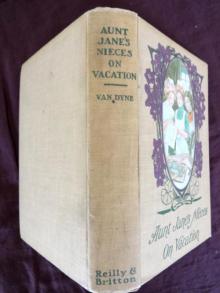 Aunt Jane's Nieces on Vacation
Aunt Jane's Nieces on Vacation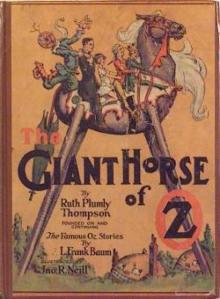 The Giant Horse Of Oz
The Giant Horse Of Oz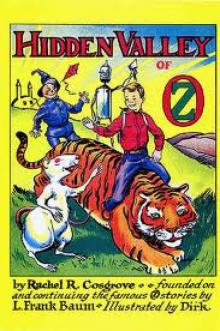 The Hidden Valley of Oz
The Hidden Valley of Oz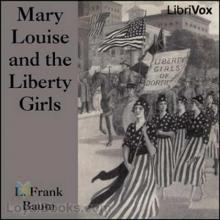 Mary Louise and the Liberty Girls
Mary Louise and the Liberty Girls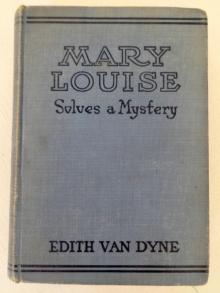 Mary Louise Solves a Mystery
Mary Louise Solves a Mystery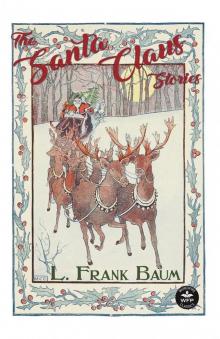 The Santa Claus Stories
The Santa Claus Stories Aunt Judith: The Story of a Loving Life
Aunt Judith: The Story of a Loving Life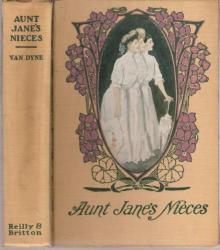 Aunt Jane's Nieces
Aunt Jane's Nieces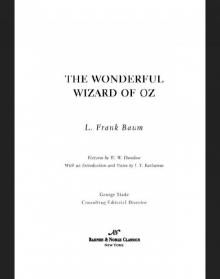 Wonderful Wizard of Oz (Barnes & Noble Classics Series)
Wonderful Wizard of Oz (Barnes & Noble Classics Series) Oz, The Complete Collection
Oz, The Complete Collection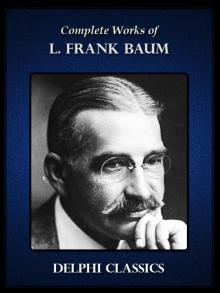 Complete Works of L. Frank Baum
Complete Works of L. Frank Baum The Wizard of Oz
The Wizard of Oz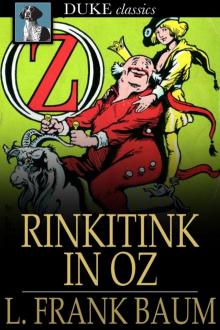 Oz 10 - Rinkitink in Oz
Oz 10 - Rinkitink in Oz